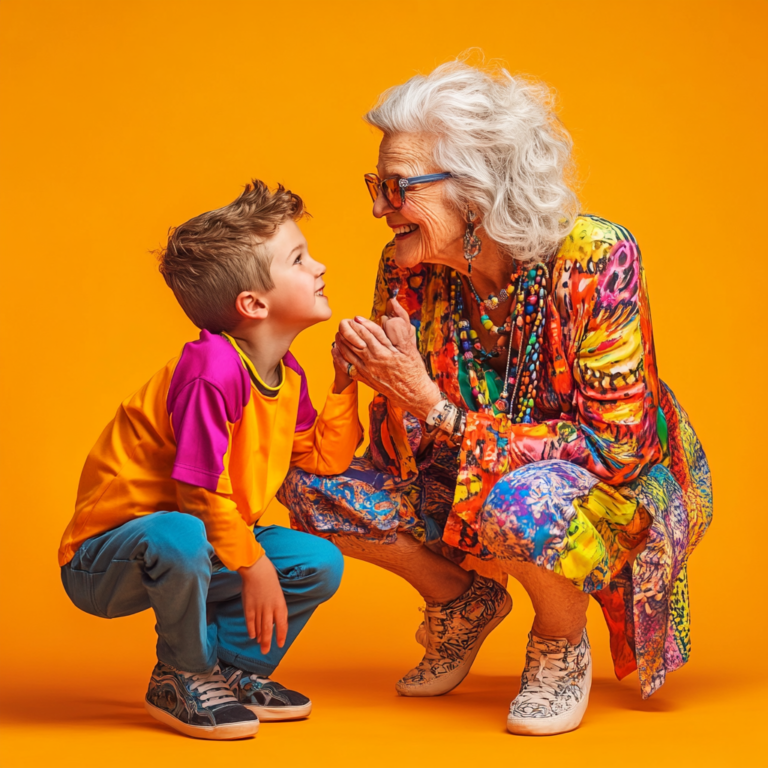In a world that often celebrates youth and innovation, it’s essential to recognize the immense value that older adults bring to society. Far from being a time of retreat or withdrawal, the later years of life are often marked by a strong desire to contribute to the community and share the wisdom accumulated over decades. Older adults possess a wealth of experience, knowledge, and skills that can greatly benefit society, and many are eager to remain active and engaged, making meaningful contributions well into their senior years.
This blog explores why older adults want to contribute to society, how they do so, and the positive impact of their involvement on communities and future generations.
A Lifetime of Experience and Wisdom

One of the most significant assets that older adults offer is their vast life experience. Having navigated the complexities of work, family, and personal growth, they possess a deep knowledge that younger generations can draw upon. This wisdom, accumulated over decades, is invaluable in providing perspective, guidance, and mentorship.
Older adults have lived through historical events, societal changes, and personal challenges shaping their understanding of the world. This perspective enables them to offer insights grounded in reality and tempered by time. Whether it’s providing advice on career choices and relationships or navigating difficult situations, the experience of older adults can provide a steady hand in guiding others.
Many older adults find great satisfaction in mentoring younger people, whether within their families, communities, or professional fields. This act of passing on knowledge not only benefits the recipients but also gives older adults a profound sense of purpose and fulfillment, knowing that their contributions are helping to shape the future.
Volunteering: A Powerful Avenue for Contribution
Volunteering is one of the most common ways that older adults continue to contribute to society. With more time available after retirement, many seniors dedicate themselves to causes they care about, offering their skills, experience, and energy to make a difference.
The impact of senior volunteers is profound. Whether tutoring children, serving in soup kitchens, participating in environmental conservation efforts, or supporting local non-profits, older adults are crucial in addressing community needs. Their commitment to service often fills critical gaps, especially in areas with limited resources.
For many older adults, volunteering is more than just a way to pass the time—it’s a calling. It gives them a sense of purpose and the opportunity to stay active and socially connected. Volunteering allows them to remain engaged in the community, meet new people, and build relationships with others who share similar values. The sense of accomplishment and the knowledge that they are making a tangible difference in the lives of others is deeply rewarding.
Lifelong Learning and Teaching

Another powerful motivator for older adults is the desire to continue learning and sharing knowledge. Many seniors pursue lifelong learning opportunities not only to keep their minds active but also to stay informed and engaged with the world. This ongoing pursuit of knowledge often leads them to become community educators and advocates.
Older adults frequently share their expertise in various fields through teaching, whether formally or informally. This might involve leading workshops, giving lectures, or participating in discussion groups. For example, a retired scientist might give talks on environmental issues, or a former teacher might offer tutoring sessions to local students.
In addition to formal teaching, many older adults share informal knowledge within their social circles. They might organize book clubs, discussion groups, or hobby clubs where they can share their interests and expertise with others. This type of engagement fosters a sense of community and allows older adults to contribute to their communities’ intellectual and cultural life.
Advocacy and Civic Engagement
Many older adults find purpose in advocating for causes they believe in. Whether it’s fighting for social justice, environmental sustainability, or healthcare reform, seniors bring a powerful voice to the issues that matter most to them. Their years of experience often give them a unique perspective on the challenges society faces, and they are often driven by a desire to leave the world a better place for future generations.
Older adults may engage in civic activities such as voting, campaigning, or even running for office. They participate in public forums, join advocacy groups, and use their platforms to raise awareness about important issues. Their involvement in civic life is crucial for a healthy democracy, as it ensures that the needs and perspectives of all age groups are represented.
In addition to political advocacy, many seniors are involved in grassroots organizing, working on issues like affordable housing, education, or community safety. Their contributions are often instrumental in driving change at the local level, where their experience and leadership can have a direct impact.
Supporting the Next Generation

One of the most profound ways older adults contribute to society is by supporting the next generation. This support can take many forms, from providing childcare for grandchildren to offering financial assistance, emotional support, or guidance.
For many seniors, family remains a central focus of their lives. Grandparents often play a vital role in the upbringing of their grandchildren, providing care, wisdom, and stability. This intergenerational bond benefits the older and younger generations, fostering a sense of continuity, tradition, and mutual respect.
Beyond their immediate families, many older adults take an active interest in the well-being of all young people in their communities. They might volunteer at schools, mentor youth, or participate in programs to support at-risk children. By investing their time and energy in the younger generation, older adults help to ensure a brighter future for all.
Creativity and Cultural Contributions
The later years of life often bring with them a flowering of creativity. Freed from the constraints of a career, many older adults find the time to explore artistic endeavors such as writing, painting, music, or crafts. These creative contributions enrich society’s cultural fabric and often provide profound insights into the human condition.
Older adults who engage in creative work often draw upon their life experiences, creating art that resonates with authenticity and depth. Whether through memoirs, poetry, visual art, or music, their work can inspire, educate, and entertain. In many cultures, elders are seen as the keepers of tradition and culture, passing down stories, songs, and customs that keep the community’s heritage alive.
In addition to individual creative pursuits, many older adults contribute to cultural institutions such as museums, galleries, and theaters as volunteers, patrons, or board members. Their involvement helps to sustain these institutions and ensures that cultural heritage is preserved and celebrated.
Resilience and Role Modeling

Finally, the presence of older adults in society is a powerful reminder of resilience and the human capacity to adapt and thrive. Having lived through decades of change, older adults embody the ability to persevere through challenges and continue to find meaning and joy in life. This resilience is a powerful example for younger generations, demonstrating that life can be fulfilling at any age.
By staying active, engaged, and committed to contributing to society, older adults serve as role models for a purposeful life. Their stories of overcoming adversity, commitment to their communities, and willingness to continue learning and growing are lessons that inspire all of us.
Conclusion
Older adults are far from passive members of society; they are vibrant, active contributors who enrich the world in countless ways. Whether through volunteering, mentoring, teaching, advocating, or creating, seniors bring a wealth of experience, knowledge, and compassion to the table. Their desire to give back and make a difference is beneficial not only for their own well-being but also for the communities and societies they serve.
As we recognize the contributions of older adults, it’s essential to create opportunities for them to stay engaged and involved. By doing so, we honor their lifetime of achievements and ensure that their valuable contributions continue to shape our world for the better. By embracing the wisdom and energy of older adults, society as a whole will become more prosperous, stronger, and more connected across generations.

